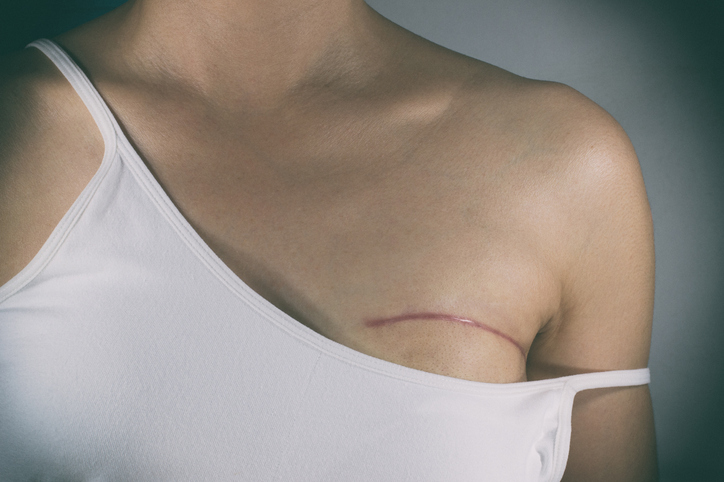Uncover the hidden connections between your family's past and your future well-being as we delve...
Read More

The term lymphedema comes from the words “lymph,” a fluid that circulates in the body’s lymphatic system, and “edema,” which is an excess of bodily fluids in a certain area. Lymphedema occurs when fluid doesn’t drain properly—an issue that often affects breast cancer patients who have their lymph nodes removed or who undergo radiation that impacts the lymph nodes. This is called breast cancer-related lymphedema.
“Lymphedema symptoms often get overlooked as post-operative swelling, but making this assumption can be harmful,” said Nandini Kulkarni, M.D., a fellowship-trained, double board certified, surgical oncologist and Medical Director of Surgical Oncology for Inspira Health. “ Lymphedema can happen months or even years after surgery, so it’s important to be vigilant.”
When monitoring for breast cancer-related lymphedema symptoms, look for:
“Lymphedema can’t be cured, but it can be managed and controlled. Fortunately, through the use of technology we are able to detect lymphedema early, while it is most treatable,” said Dr. Kulkarni. “The ImpediMed SOZO device, allows us to quickly identify lymphedema by measuring how much fluid is in a patient’s body before treatment, and then monitor changes in fluid in an ongoing fashion.”
With the SOZO device, providers can measure a patient’s L-Dex score—a metric determined by the amount of fluid in the body that can indicate lymphedema before the onset of visible symptoms. This non-invasive diagnostic test only takes 30 seconds to complete.
“Typically, we diagnose lymphedema by looking for physical signs, using imaging or by measuring upper limb circumference which can be a cumbersome process for screening,” said Dr. Kulkarni. “Now, we can regularly monitor lymphatic changes in the body by gathering a baseline reading, obtaining additional reading after any surgery or radiation treatment that involves lymph node intervention and then on a regular basis.”
If you have lymphedema, the best thing you can do is protect the afflicted area. That means protecting the extremity from injury, sunburn and heat, as well as avoiding tight clothes and jewelry. Patients with lymphedema, are evaluated by specially trained physical therapists. Treatment may include:
“Lymphedema treatment is unique to each patient. That is why having open and consistent conversations with your health care team can help you get the resources you need,” said Dr. Kulkarni. If you are awaiting breast cancer surgery or receiving any surgery or cancer treatment that could impact your lymph nodes, talk to your health care provider about your lymphedema risk.
L-Dex scores can be measured at Inspira’s Surgical Oncology offices at Inspira Medical Centers in Vineland and Mullica Hill. Inspira also offers rehabilitation services at these medical centers and other convenient locations across South Jersey. Learn more about Inspira’s approach to breast cancer and lymphedema treatment online.
Inspira Health is a high reliability organization (HRO), which means safety is the top priority for patients and staff. To make an appointment, call 1-800-INSPIRA.

Uncover the hidden connections between your family's past and your future well-being as we delve...
Read More
Treating cancer requires an arsenal of tools and preventive measures. Explore the power of...
Read More
President & CEO Amy Mansue attended Inspira's Cancer Survivors Day event, organized by our Cancer...
Read More
The material set forth in this site in no way seeks to diagnose or treat illness or to serve as a substitute for professional medical care. Please speak with your health care provider if you have a health concern or if you are considering adopting any exercise program or dietary guidelines. For permission to reprint any portion of this website or to be removed from a notification list, please contact us at (856) 537-6772